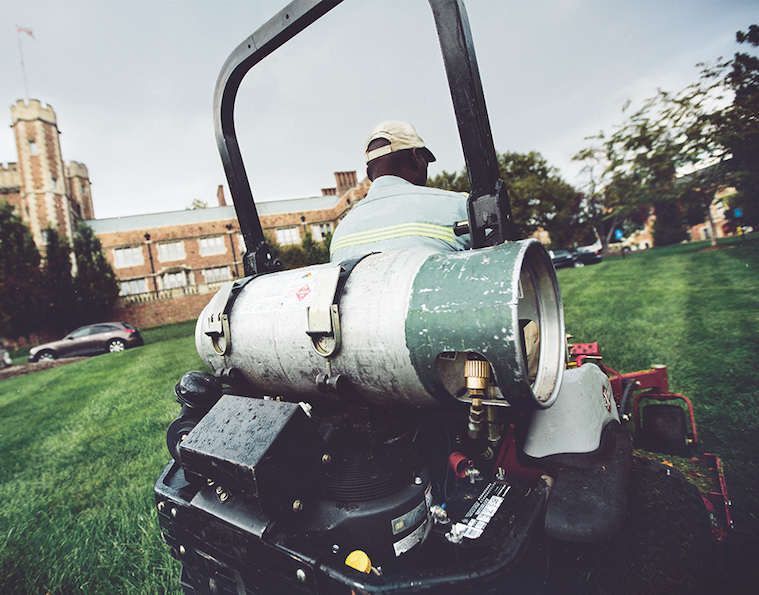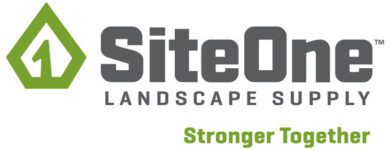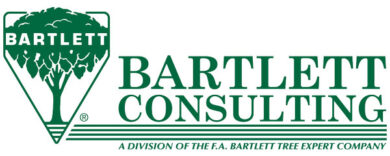3 Secrets Contractors Using Propane Don’t Want Their Competition to Know

By Jeremy Wishart
In the professional landscape industry, it can be tough for local and regionally based companies to get ahead. Contractors offer similar services, making it difficult for customers to differentiate between companies, and a low barrier of entry into the industry means any person with a mower and a truck is suddenly new competition.
The landscape contractors who ultimately make it in this business are those who are constantly looking for an edge to stay ahead of the competition. A growing number of contractors have found that edge by operating propane mowers — although they may not want their competition to know it. Unfortunately for them, the secret is already out in a big way. More than 20,000 propane mowers were in operation this past summer, and 14 major OEMs are offering propane mower models.
Here are a few of the secrets contractors who are already operating with propane equipment don’t want their competition to know.
Secret #1: Propane is helping contractors win new customers.
Contractors using propane often find that there are two factors about the fuel that can help win new customers — propane is both clean and affordable. Compared to gasoline mowers, propane mowers reduce greenhouse gas emissions by 17 percent, nitrous oxide (NOx) emissions by 19 percent, and sulfur oxide (SOx) emissions by 16 percent. The fuel also typically costs 30 to 50 percent less per gallon than gasoline. These lower emissions and costs are two big reasons that changing fuels can help a contractor add new customers.
For one, some public entities are now adding sustainability requirements to turf and lawn maintenance work, including large projects with school districts, parks departments, and other city grounds facilities. Using propane allows contractors to meet those requirements, while simultaneously presenting a lower bid than the competition by incorporating propane’s lower costs into budgeting and estimates.
Additionally, contractors using propane are also having success with new residential customers because the lower operational costs of propane mowers allow for highly competitive pricing. Propane mowers cost about 30 percent less per hour to operate than gasoline. Those savings can be passed on to customers in the form of lower prices
Secret #2: The transition doesn’t have to be challenging or expensive.
It wasn’t long ago that it was difficult to find a propane-powered mower that wasn’t a zero-turn radius model. But with more OEMs responding to increased demand from contractors, there are now more than 150 propane model options to choose from in a variety of ZTR, wide-area walk behind, and stand-on units — making it likely that contractors won’t have to change the brand or even the model of mower they’re comfortable running. In addition, there are four EPA-certified propane conversion kits, so almost any mower can be converted from gasoline to use clean propane.
Contractors can also take advantage of incentives intended to offset the additional cost of purchasing a propane unit. The Propane Mower Incentive Program from the Propane Education & Research Council offers contractors $1,000 for every new commercial propane mower purchase and $500 for every certified propane conversion kit.
Getting employees on board with a new fuel may seem daunting, but many contractors using propane say that crews are quick to pick up on the new equipment because a propane mower operates exactly like a gasoline model for the crew. The cutting experience with propane mowers is identical to those currently using gasoline equipment, too. Plus, training operators to safely swap and refuel propane cylinders often requires minimal downtime.
Secret #3: More customers are looking for green services.
Contractors using clean propane can also capitalize on the growing number of green-minded consumers. In fact, the National Association of Landscape Professionals’ top landscape trends of 2018 forecasts that eco-friendly equipment and incorporating sustainability into landscaping and landscape maintenance will continue to be a feature in the industry to meet consumer demand.
By positioning themselves as an alternative to the surrounding competition and calling out propane’s environmentally friendly attributes, contractors can reach this growing market. Propane is recognized by the EPA as a non-contaminant of the air, water, and soil – a fact that may appeal to parents and schools in keeping children safe on playgrounds, sports fields, and parks. In commercial settings, business owners can call out that they work with contractors using clean equipment as they, too, seek to reach eco-conscious consumers.
Propane’s clean emissions profile is also a benefit for contractors in markets where ozone action days are monitored or enforced. Though gas and diesel mowers get parked at the curb by local governments, contractors using propane can keep cutting. For customers, this means no delay in services — and for contractors there’s no delay in revenue.
Although it’s no secret that the green industry faces new changes and challenges, by adding propane equipment into a fleet, contractors can find themselves moving ahead of competition and costs.
Jeremy Wishart is the director of off-road business development for the Propane Education & Research Council. He can be contacted at jeremy.wishart@propane.com. For more information about propane mowers, visit www.propane.com/commercial-landscape.


